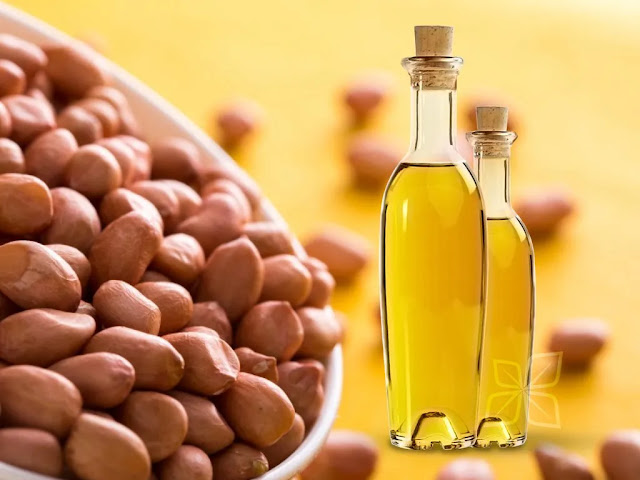Cayenne pepper is a popular spice that has been used for centuries because of its health benefits.
It’s known to have antibacterial, antiviral, and anti-inflammatory properties. It also helps maintain healthy blood pressure levels and cholesterol levels.
How to incorporate Cayenne Pepper into your diet
The benefits of cayenne pepper are widely known, but there is still much to learn about it. For example, Cayenne pepper contains capsaicinoid compounds that can help weight loss and diabetes by reducing hunger. Cayenne pepper also has anti-inflammatory properties that can reduce your chances of developing many chronic diseases like arthritis and cardiovascular disease.
Using Cayenne Pepper in meals:Cayenne pepper is a warm spicy seasoning that has been used for centuries. Cayenne pepper has many health benefits that can be applied to both healthy and unhealthy food. Adding it to the meal adds an extra flavour element while also providing your body with additional nutrients.
We are using Cayenne Pepper topically:Cayenne Pepper has various health benefits ranging from its ability to aid in treating burns, even cancer. One area where Cayenne Pepper stands out is its anti-inflammatory properties. Cayenne Pepper contains capsaicin that helps reduce swelling and pain, prevents joint injury, and relieves joint inflammation.
Using Cayenne Pepper for pain relief:Cayenne pepper has been used throughout history as a medicinal remedy for pain relief. It is a herb with an active ingredient called capsaicin, which makes it a natural pain reliever. The red colour of the pepper comes from capsaicin and another ingredient that helps with blood circulation. Cayenne pepper can be found in many different forms, such as capsules, creams, and teas.
Pros and Cons of using Cayenne pepper for diabetes prevention
Cayenne pepper is one of the most popular spices in the world. There are many health benefits associated with this ground chilli pepper that can prevent or treat diabetes. However, there are also some adverse effects which ought to be taken into consideration before using them.
May Boost Your Metabolism: Capsaicin is a chemical from the hot peppers found in cayenne peppers. Since ancient times, it has been used to help reduce pain and inflammation, but more recently, it’s been touted as a potential weight-loss drug. New research suggests that capsaicin can boost your metabolism while simultaneously helping you lose weight. The effect may be small, but if you regularly include cayenne peppers in your diet, you might want to consider giving them a try.
Can Help Reduce Hunger: Capsaicin is the spicy material found in cayenne peppers and some other hot peppers. Capsaicin can help reduce your hunger by triggering a burning sensation in your mouth and throat, making you stop eating abruptly. A study showed that participants who ate cayenne pepper were less hungry than those who had eaten saltine crackers, on average.
May Lower Blood Pressure: Capsaicin is a compound that gives hot peppers their fiery taste. It’s also found in chilli peppers, which are known to be good for your heart. Capsaicin has shown promise as an agent to lower blood pressure in animal studies, but human studies are still needed before making any recommendations.
May Aid Digestive Health: Cayenne pepper has long been a powerful natural remedy for many different ailments, including digestive diseases. This cayenne pepper spice can help stimulate your digestive system and increase the rate at which food is digested. Cayenne pepper also relieves some signs of indigestion, such as gas, bloating, heartburn, and spasms.
May Help Relieve Pain: Capsaicin is the substance that makes chilli peppers hot. It’s been shown to help relieve arthritis, fibromyalgia, and other painful conditions by thinning the mucus layer in the respiratory tract, decreasing inflammation, and increasing blood flow. It’s also the active ingredient in over-the-counter pain relievers like capsicum oleoresin.
May Improve Psoriasis: Capsaicin creams have been known to help with issues such as arthritis, heartburn, and other ailments. People living with Psoriasis may also find relief from this cream by fighting off substance P that causes their symptoms to worsen. This cream may reduce the burden of psoriasis or decrease how often it occurs for those who use it.
May Reduce Cancer Risk: Capsaicin, the chemical found in chilli peppers, has shown promise in cancer research. This ingredient has been used in topical ointments and creams to treat a variety of cancers in humans. Results from a non-human study in which mice were implanted with human prostate cancer cells suggest that capsaicin may reduce the risk of cancer recurrence. Human studies are needed before any conclusions can be made about whether or not this is true for humans.
Easy to Add to Your Diet: Cayenne peppers are a versatile spice that can be added to any dish you have in mind. They’re great for making soups, sauces, and stews while adding a little extra kick to your favourite pizzas or sandwiches. Cayenne peppers are also known for their health benefits. Not only do they contain capsaicin, an antioxidant that helps fight inflammation on the skin, but they are also rich in vitamins C and A.
Risks and Precautions: As long as you are not allergic to this spicy ingredient, cayenne peppers are generally safe to eat. However, if you take blood thinners or blood pressure medication, check with your doctor before trying cayenne peppers or capsaicin cream. The main concern with using capsaicin is that it can cause skin irritation.
Reduces Arthritic Pain: Cayenne pepper has many benefits that it brings, one of these being the ability to relieve joint pains from arthritis. This is because of the formula used for this recipe. The topical application of cayenne pepper irritates the applied area, thus helping to distract the nerves from joint pains due to arthritis.
Lowers Cholesterol Levels: There are many different reasons to take the cayenne extract. It can help with weight loss, be good for heart health, and help relieve muscle soreness. However, this particular study focused explicitly on cholesterol levels. The study was done in Spain and involved 500 patients given either a placebo or cayenne extract orally three times per day for 30 days. The results showed that those who took the cayenne extract saw significant changes in their lipid profile, including much lower LDL-cholesterol levels and much higher HDL-cholesterol levels.
Conclusion
Cayenne pepper is a staple in many cuisines. It’s called “the king of the peppers” because it has so many health benefits. It is also known as the “world’s hottest vegetable,” which makes sense given that cayenne has at least twice as much capsaicin as jalapeno or habanero peppers. Cayenne pepper aids digestion, boosts the immune system, boosts metabolism, and regulates blood sugar levels.
Don’t let the fiery red colour in this pepper fool you – it’s not just a pretty face! If you’re trying to be healthy and want to add more cayenne pepper to your diet, here are some health benefits of adding spice to your food.







